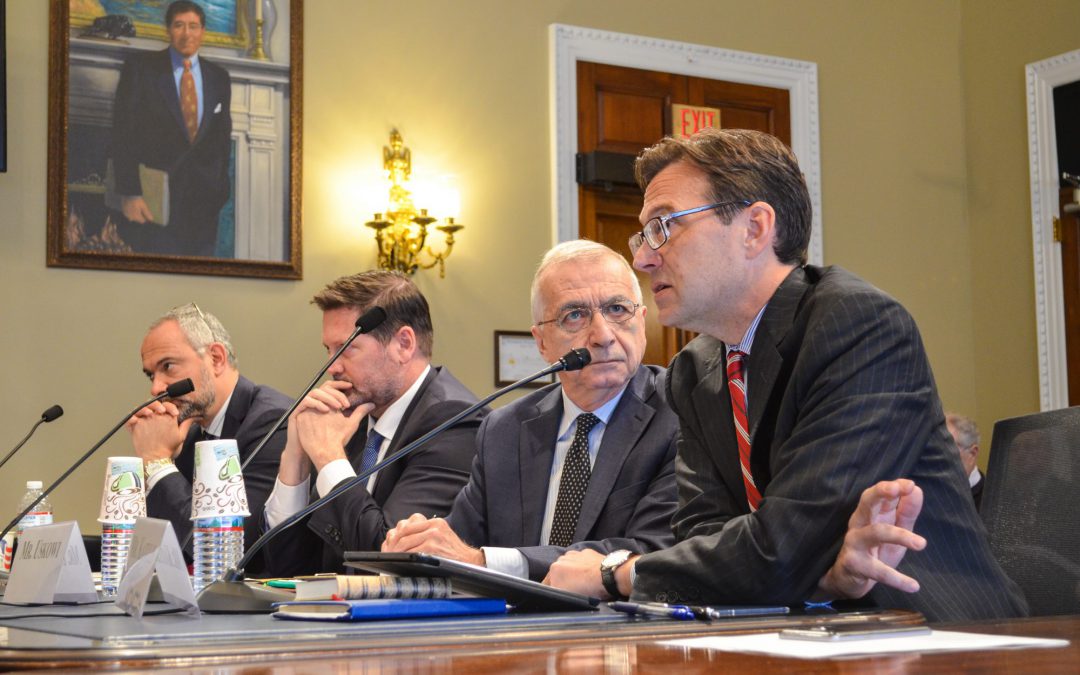WASHINGTON – The Trump administration needs to work with its allies in the Middle East to counter terrorist networks supported and funded by Iran that pose a threat to the U.S., a senior scholar from the Center for American Progress told a House Homeland Security subcommittee Tuesday.
“The Trump administration has talked a good game and has had strong rhetoric,” Brian Katulis of the progressive-leaning think tank said. “But I would characterize its approach vis a vis Iran as one of passive appeasement.”
Starting with President George W. Bush, the U.S. has had an “overly militarized approach” toward the Middle East when it should use diplomacy to advance conflict resolution, Katulis testified before the Subcommittee on Counterterrorism and Intelligence. The Trump administration’s freezing of $200 million in counterterrorism and stabilization assistance money to Syria, an Iran ally, sends a signal to the Middle East that the United States is “not willing to even show up anymore,” he said.
In a statement, Mississippi Rep. Bennie Thompson, the top Democrat on the Homeland Security Committee, criticized as “inadequate and inconsistent” the measures taken by the Trump administration to defend the U.S. against Iran and terrorist groups it supports. “The recent chaotic announcement of a withdrawal of troops (from Syria), potential termination of the nuclear deal and the depletion of aid and diplomatic resources are short-sighted and dangerous policies that only embolden Iran.”
But Rep. Scott Perry, R-Pa., defended the Trump administration.
“You would characterize the current administration as passive appeasement versus what I would characterize as active appeasement if not aggressive collaboration,” he said. “(Trump) has got a lot to do, and a lot of what he has to do has been caused by the previous administration.”
The U.S. has failed to have a comprehensive policy toward Syria both under the Trump and Obama administrations, said New York Rep. Kathleen Rice, the top Democrat on the subcommittee. “As a country we have failed not just from a national security interest but also humanitarian interests for sure.”
She criticized President Donald Trump for not nominating ambassadors for many of America’s key allies in the Middle East, including Jordan, Egypt, Saudi Arabia, Turkey, the United Arab Emirates and Qatar. “How is it possible for the U.S. to conduct comprehensive foreign policy in the region without these critical diplomatic positions?” Rice said.


